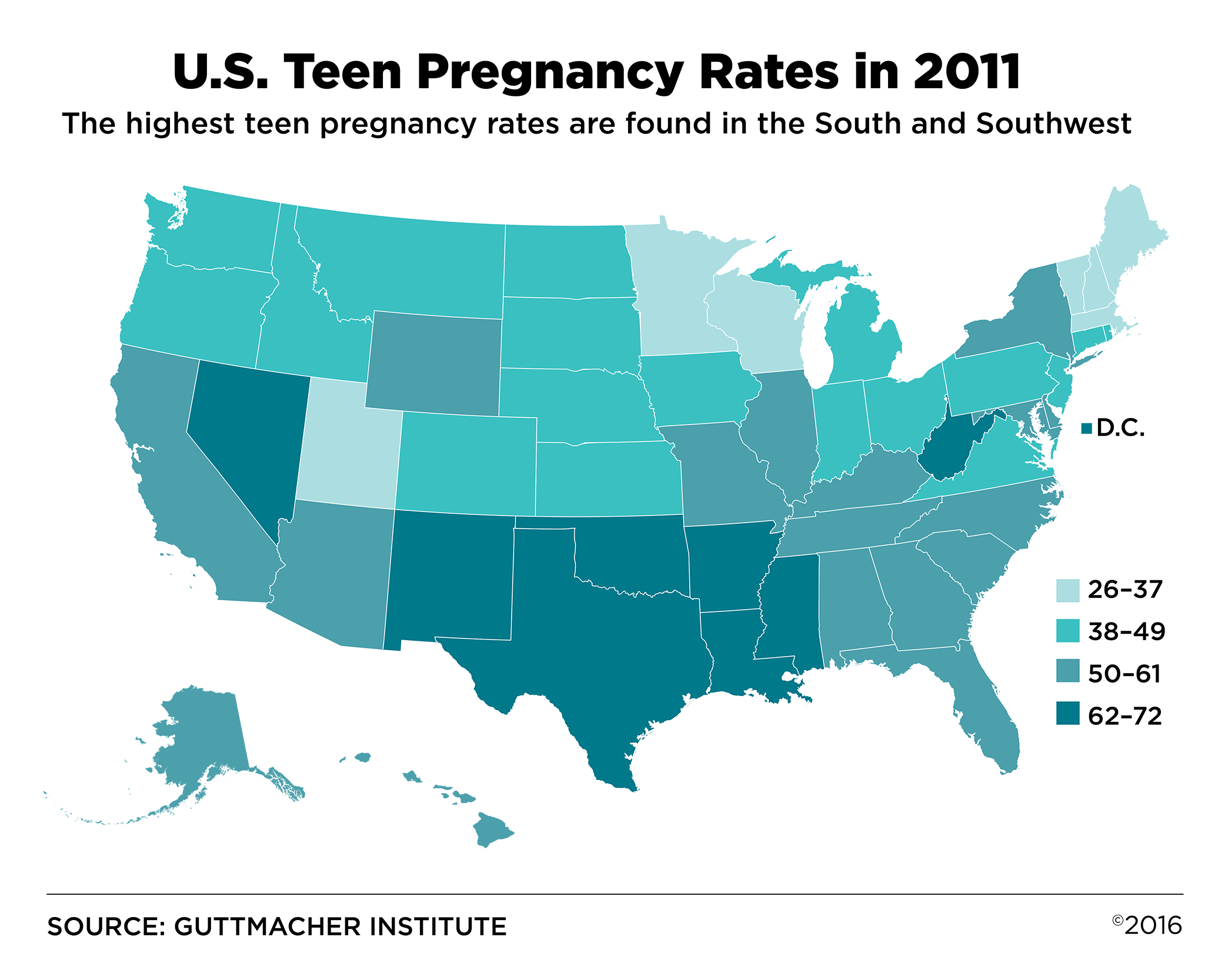The united states still has the highest teen pregnancy rate of any industrialized country in the world part of the reason is the patchwork quilt of sex ed programs among the states many of which teach abstinence only sex ed

The United States: Tackling the Challenge of Teen Pregnancy
Teen pregnancy continues to remain a significant issue in the United States, holding the unfortunate distinction of having the highest rate among industrialized countries across the globe. This alarming statistic is influenced by a range of factors, and one of the primary contributors is the diverse landscape of sex education programs implemented throughout the country. Many states still emphasize “abstinence-only” sex education, further complicating efforts to address and reduce the rate of teenage pregnancies.

A study published on PubMed supports the fact that variations in sex education programs significantly impact the prevalence of teen pregnancies. The United States stands out as a land of contradictions, vividly displaying a patchwork quilt of sex education approaches. While some states have adapted comprehensive sex education curricula that provide teenagers with a holistic understanding of reproductive health, sexuality, and contraception, many others have clung to abstinence-only programs as their primary mode of instruction.
The fundamental idea behind abstinence-only sex education is to advocate for abstaining from sexual activity until marriage as the only acceptable choice. Proponents of this approach believe that emphasizing abstinence will discourage teenagers from engaging in sexual behavior altogether. However, the reality is far more complex.
Numerous studies have demonstrated that abstinence-only sex education does not effectively prevent teenagers from engaging in sexual activity. Instead, it often leads to a lack of understanding and misinformation about reproductive health, contraceptive options, and sexually transmitted infections (STIs). In the absence of comprehensive knowledge, teenagers are more likely to engage in risky sexual behaviors, increasing their vulnerability to unintended pregnancies and STIs.
Critics argue that abstinence-only education fails to acknowledge the curiosity and natural urges experienced by teenagers. These programs often neglect important aspects such as contraception, consent, healthy relationships, and safe sexual practices. By limiting discussions to abstinence, teenagers are denied the knowledge and tools necessary to make informed decisions regarding their sexual health. Consequently, these programs inadvertently contribute to the perpetuation of high teen pregnancy rates.
Addressing the issue of teen pregnancy requires a shift in sex education paradigms. Comprehensive sex education programs have proven to be effective in providing teenagers with accurate information, fostering responsible decision-making, and reducing rates of unintended pregnancies. These programs encompass various topics, including comprehensive information about contraception methods, understanding consent, building healthy relationships, and preventing STIs.
By adopting comprehensive sex education, states can empower teenagers to make informed choices that align with their values and priorities. It is crucial to equip them with a broad understanding of reproductive health while fostering open and honest conversations. Encouraging dialogue between teenagers, parents, and educators is essential to ensure that young individuals receive accurate information from trusted sources.
To combat the high teenage pregnancy rate in the United States, it is imperative to prioritize evidence-based comprehensive sex education programs nationwide. This approach would not only equip teenagers with the necessary knowledge and resources but also address the overarching social factors that contribute to early pregnancies.
By making a conscious effort to implement informative and inclusive sex education programs, society can take a significant step towards reducing the alarming rates of teenage pregnancies in the United States.
Source: PubMed Study
Tags
Share
Related Posts
Quick Links
Legal Stuff

